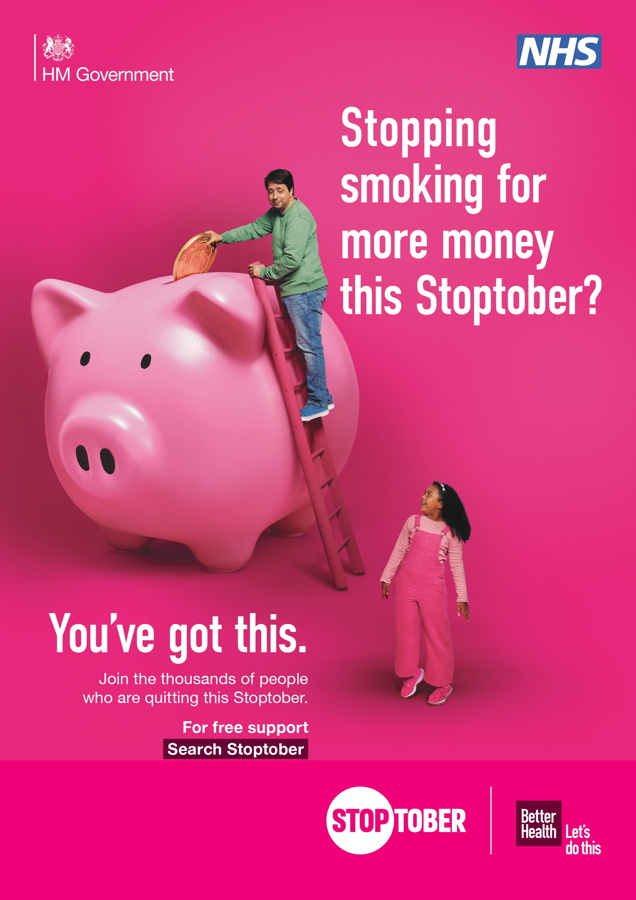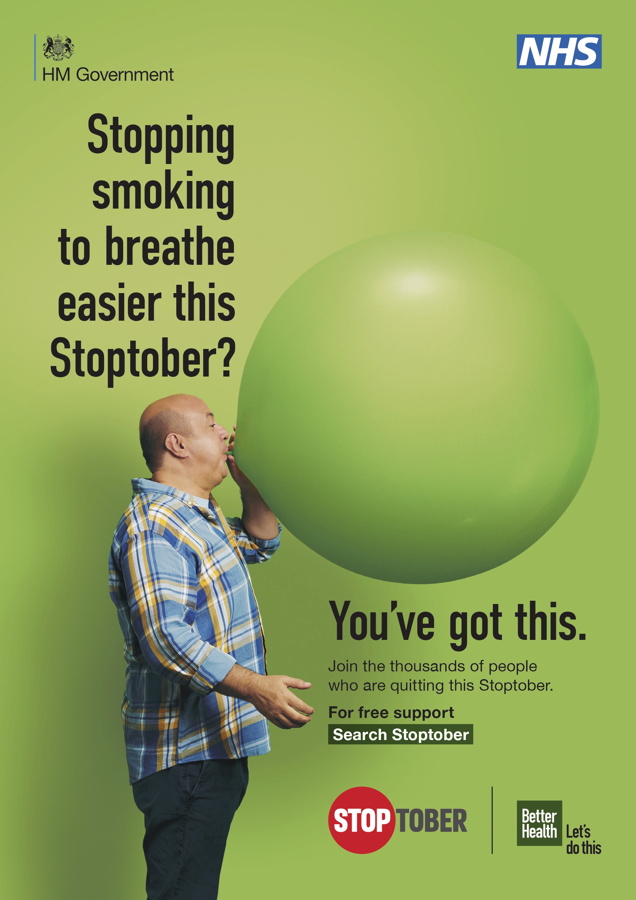Help smokers quit this Stoptober
September 30, 2022

Stoptober, an initiative by the government to encourage smokers to give up on smoking, was launched a decade ago in 2012. The 28-day stop smoking challenge, beginning on 1 October, is underpinned by the research findings that if one quits for 28 days, they are fove times more likely to quit for good.
This year’s campaign will reach smokers through a range of media including radio, video on demand and out-of-home display; with an emphasis on targeting smokers aged 25 to 50 from lower socio-economic groups who work in routine and manual jobs. The messaging of the campaign – ‘You’ve got what it takes to quit this Stoptober’ – encourages smokers to quit not only by promoting the benefits of quitting, but also to give them confidence that they can quit successfully.
“Programmes like Stobtoper and our own Vapril campaign go a long way to send the right message to smokers that there are many ways they can quit and that vaping is a great option. It is encouraging that the programme again this year will feature vaping heavily as it is currently the most popular and successful way for smokers to quit in the UK,” John Dunne, Director General of the UK Vaping Industry Association (UKVIA), said.

The Independent British Vape Trade Association (IBVTA) is also backing the campaign, but wants more thrust on the benefits of vaping as a quit smoking tool.
“Stoptober presents a perfect opportunity for smokers to give quitting a try, including using an e-cigarette to quit. The IBVTA partnered with Public Health England’s Stoptober and Health Harms campaigns in 2017 and 2018. We did so to help raise awareness of the relative risk of smoking versus vaping, among the millions of smokers who incorrectly believe that vaping is as or more harmful than smoking,” it said.
“Since that time many of our members have used their shops and websites to promote the use of e-cigarettes as an alternative to smoking during the Stoptober campaign. However, there are limitations in how candidly they are able to put forward a clear message about the genuine health benefits of quitting smoking through vaping.”
Since 2012, Stoptober has driven over 2.3 million quit attempts. Each year the campaign seeks to offer a refreshed approach to generate awareness, interest and engagement among smokers to build on an established and proven approach that has now been running for several years.
In 2020, the campaign generated quit attempts among 12.3 per cent of all smokers and recent ex-smokers, with 4 per cent reporting that they were still not smoking at four weeks. The campaign also generated 7 per cent of respondents claiming that they made another positive claimed action as a result of the campaign, for example, downloaded the Stoptober app, or spoke to a pharmacist about quitting.

According to an evaluation report, the year 2020 saw 27,694 app downloads (compared to 18,939 in 2019) and 16,412 Personal Quit Plan completions (compared to 18,568 in 2019). “Despite COVID-19 pandemic, we still saw significant levels of support from local authorities, NHS organisations, national and regional charities as well as local stop smoking service providers. We had over 19,000 downloads of campaign assets from the Campaign Resource Centre, with 93 per cent of Stoptober 2020 campaign partners who completed our post-campaign survey saying they would support the campaign again (with the remaining 7 per cent saying ‘maybe’),” the report said.
The report also stated that Stoptober brand awareness fell to 40 per cent from 54 per cent in 2019 and, in turn, this looks to have had an impact on Stoptober campaign recall (35 per cent in 2020 compared to 49 per cent in 2019). However, encouragingly, this doesn’t appear to have negatively impacted behavioural action.
IBVTA explained: “Unfortunately, CAP’s (Committee of Advertising Practice) interpretation of the advertising rules since 2019 is that any co-branded materials would be in breach of the rules. Effectively, PHE could not have independent vape shops support public health campaigns. This is something the IBVTA is lobbying to change, as we strongly support public health stakeholders being allowed to promote e-cigarettes in general as a smoking cessation tool, and to do so freely on any advertising platform. We were heartened to see this recommendation feature so prominently in the recent policy review by Javid Khan, OBE.”
The UKVIA is encouraging its members to share the resources available on the PHE website. Dunne said: “The government had made resources available to order or download at https://campaignresources.phe.gov.uk/resources which we will be encouraging our members to use. We will also encourage them to share all in store promotions which we will amplify through our extensive social media presence.”
Retailers can also download the PHE campaign resources directly by registering on the website.
